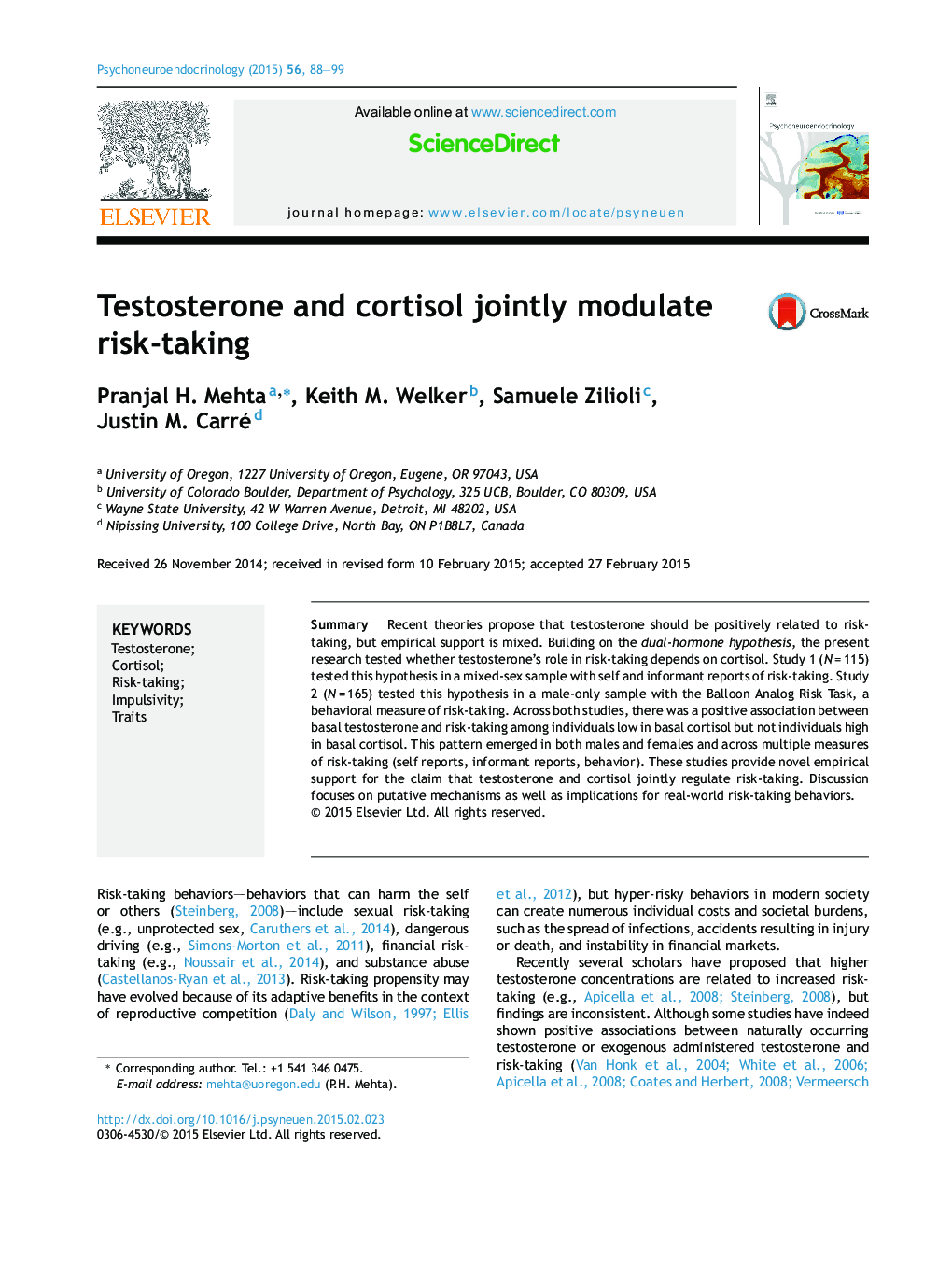| Article ID | Journal | Published Year | Pages | File Type |
|---|---|---|---|---|
| 6818814 | Psychoneuroendocrinology | 2015 | 12 Pages |
Abstract
Recent theories propose that testosterone should be positively related to risk-taking, but empirical support is mixed. Building on the dual-hormone hypothesis, the present research tested whether testosterone's role in risk-taking depends on cortisol. Study 1 (NÂ =Â 115) tested this hypothesis in a mixed-sex sample with self and informant reports of risk-taking. Study 2 (NÂ =Â 165) tested this hypothesis in a male-only sample with the Balloon Analog Risk Task, a behavioral measure of risk-taking. Across both studies, there was a positive association between basal testosterone and risk-taking among individuals low in basal cortisol but not individuals high in basal cortisol. This pattern emerged in both males and females and across multiple measures of risk-taking (self reports, informant reports, behavior). These studies provide novel empirical support for the claim that testosterone and cortisol jointly regulate risk-taking. Discussion focuses on putative mechanisms as well as implications for real-world risk-taking behaviors.
Related Topics
Life Sciences
Biochemistry, Genetics and Molecular Biology
Endocrinology
Authors
Pranjal H. Mehta, Keith M. Welker, Samuele Zilioli, Justin M. Carré,
